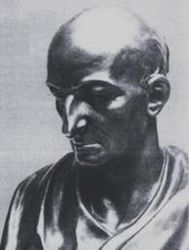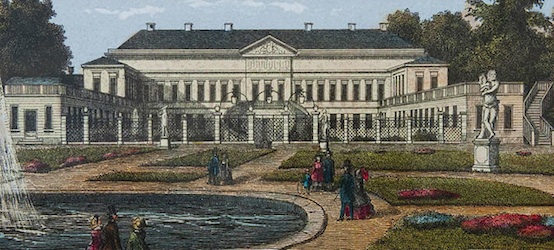Leibniz on Himself and His Writings


"It cannot be said how extraordinarily distracted I am. I dig things out of the archives, I inspect old papers, I search for unknown manuscripts. From these I try to throw light on the history of Brunswick. I send and receive a great number of letters. I truly have so many new results in mathematics, so many philosophical ideas, so many other scholarly observations which I would not want to lose, that I often hesitate, wavering between tasks, and feel almost like that line from Ovid: Inopem me copia fecit... Nevertheless, all these labors of mine, if you exclude the historical, are almost clandestine, for you know that at the Court something far different is sought and expected." Letter to Placcius, 5 September 1695 (Dutens VI.1, 59-60)
"I read books not to criticize them but to profit from them. The result is that I find good everywhere, though not equally." Letter to Morell, 10/20 December 1696 (A I.13, 398)
"He who knows me only through what I have published does not know me." Letter to Placcius, 1697 (Dutens VI.1, 65)
"Provided that something of importance is achieved, I am indifferent whether it is done in Germany or France, for I seek the good of mankind. I am neither a phil-Hellene nor a philo-Roman but a phil-anthropos." Letter to Gilles des Billettes, 11/21 October 1697 (G VII 456/L 475)
"The true metaphysics, or philosophy, if you will, appears to me no less important than geometry, especially if there is also a way of introducing into it demonstrations, which until now have been entirely excluded from it, along with the calculus that will be necessary in order to give them all the entry they need. However, it is necessary to prepare readers with exoteric writings. The journals have served me well until now." Letter to Fontanelle, 1704 (Foucher de Careil, 234)
"It is true that my Theodicy does not suffice to present my system as a whole. But if it is joined with what I have published in various journals, those of Leipzig, Paris, and those of M. Bayle and M. Basnage, it will not fall short of doing so, at least for the principles." Letter to Remond, July 1714 (GP III 618/L 656-7)
"I scorn nothing readily (with the exception of the divinatory arts, which are nothing but sheer trompery through and through)." (GP III 620)